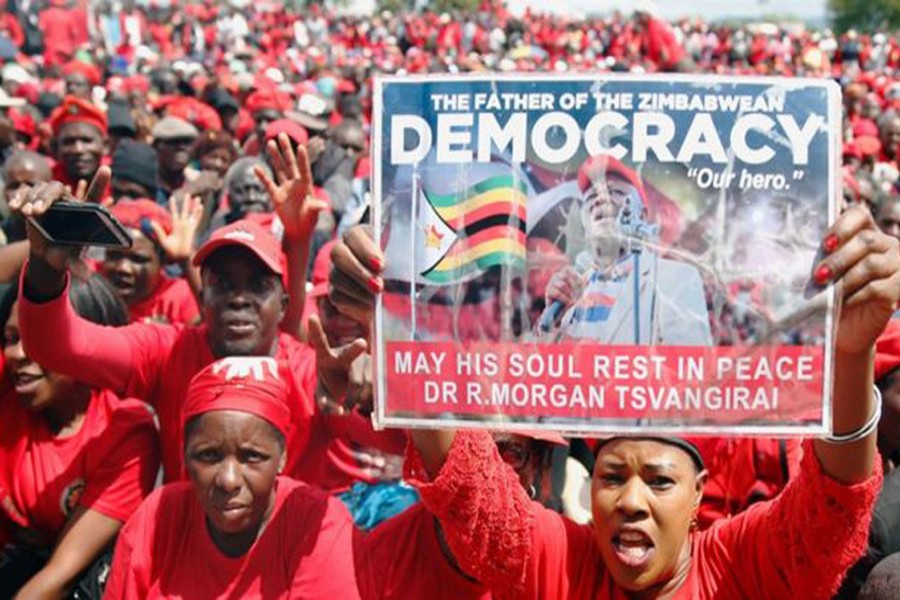More than 5,000 people have attended the burial of Zimbabwe's opposition leader Morgan Tsvangirai in his home village after he died of colon cancer.
The burial was marred by divisions in the party he formed and led, the Movement for Democratic Change (MDC).
Crowds booed two leaders challenging the appointment of Nelson Chamisa as the party's acting president.
Mr Tsvangirai, a fierce opponent of Zanu-PF's 37-year rule, died of colon cancer on 14 February aged 65, according to a BBC report.
Kenya's main opposition leader Raila Odinga attended the burial, having previously hailed Tsvangirai as someone who fought for "justice for his country and his people despite the firm hands of dictatorship that held sway".
Kenya's immigration department had barred two allies of Mr Odinga, Senator James Orengo and businessman Jimi Wanjigi, from flying to Zimbabwe for the burial, saying the pair had failed to present a court order overturning a suspension of their passports.
The department later reversed its decision.
Tsvangirai was lowered to his final resting place, beside his first wife Susan, in Buhera, some 200km (124 miles) from the capital, Harare.
Even in grief, the tensions within the MDC are apparent, as rival factions battle for control of the party, reports BBC.
MDC vice-president Thokozani Khupe and secretary-general Douglas Mwonzora were booed by some mourners for opposing Mr Chamisa's appointment as acting party leader.
Some believe the MDC could split following Tsvangirai's death, while others say it could re-energise itself under a new leadership, our correspondent says.
Zimbabwe is due to hold general elections later this year, the first since President Emmerson Mnangagwa forced long-time ruler Robert Mugabe to step down in November.
Tsvangirai's career was marked by a long political struggle against Mugabe. He was beaten and imprisoned numerous times.
In the 2008 election, Mr Tsvangirai gained the most votes in the first round but not enough to win outright.
Before the second round of voting, Mugabe's security forces carried out a campaign of violence against opposition supporters, and Tsvangirai withdrew.
Mugabe was declared the winner, but an international outcry over allegations of violence and vote-rigging led to a power sharing agreement in which Tsvangirai would serve as prime minister.
Tsvangirai ran against Mugabe again in 2013 but lost by a landslide.


